Herbs
Back Clinic Herbs Functional Medicine Team. A medication prepared from plants, including most of the world’s traditional remedies for disease. Most think of herbal remedies as products sold over the counter as “supplements,” such as saw palmetto extract or some ointment. However, many over-the-counter and prescription drugs are based on ingredients derived from plants, including aspirin and digoxin. Lab tests show that some herbal remedies are effective against illness. An Individual should use these drugs as carefully as prescription medicines, using caution to avoid overdose, interactions with other medications, and misuse.
Herbal medicines are one type of dietary supplement. They are sold as tablets, capsules, powders, teas, extracts, and fresh or dried plants. People use herbal medicines to maintain or improve health. Many believe that products labeled “natural” are safe to use. This is not true, as herbal medicines do not have to go through the testing that drugs do. Some herbs, such as comfrey and ephedra, can cause serious harm. In addition, certain herbs interaction with a prescription or over-the-counter medicines can work well with other medicines and be dangerous. Before using herbal medicines, first, get information from reliable sources and tell your health care provider about any herbal medicines you are taking.
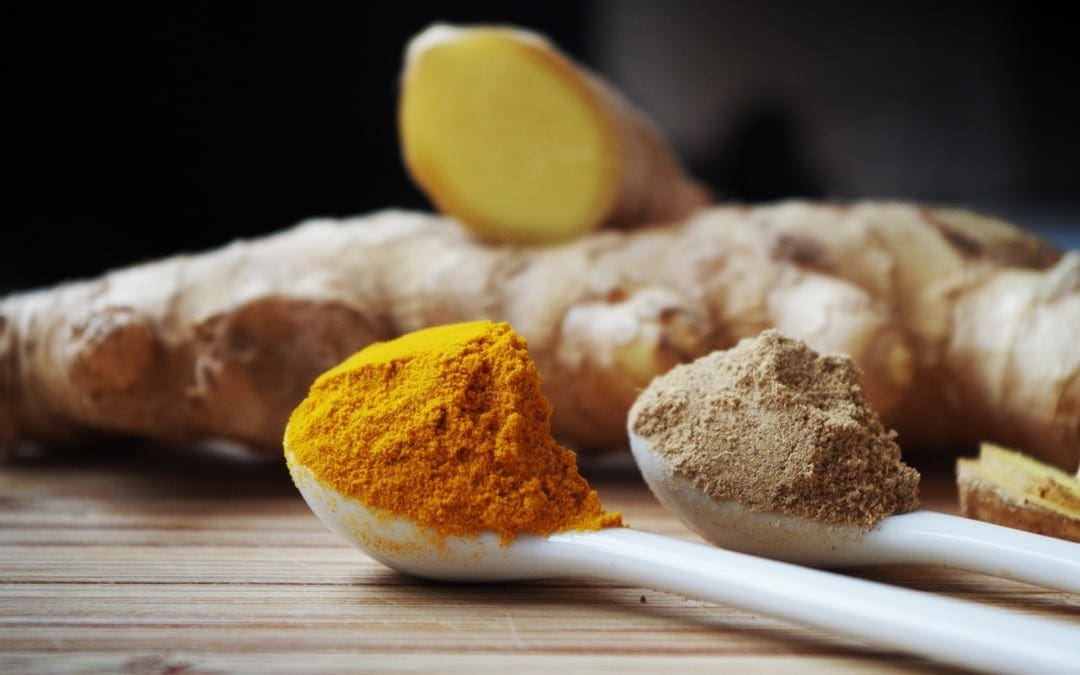
by Dr Alex Jimenez DC, APRN, FNP-BC, CFMP, IFMCP | Turmeric
There is more evidence that the active ingredient in turmeric may have the power to help combat malignant mesothelioma.
A new French study on curcumin finds that the compound not only slowed the growth of one of the rarest types of mesothelioma tumor cells in the laboratory but also reduced total tumor mass in lab rats in just two weeks.
Evaluating Curcumin�s Effect on Mesothelioma Cells
Curcumin, the plant polyphenol that gives turmeric its yellow hue and pungent flavor, has been the subject of numerous malignant mesothelioma studies in recent years, in part because of its powerful anti-inflammatory properties.
In the newest study, the French researchers focused on one of the rarest and deadliest subtypes of the asbestos cancer � sarcomatoid mesothelioma.
First, they used sarcomatoid mesothelioma cells from rats that had been induced to develop mesothelioma by exposing them to asbestos. By testing curcumin on the mesothelioma cells first, the research team was able to determine the optimal curcumin concentration and dose to use on the live rats.
Testing Curcumin in Live Rats with Mesothelioma
With dosing established, the researchers administered curcumin directly into the peritoneal cavities of sick mice. For comparison, a second group of rats was treated with an epigenetic drug called SAHA.
�The treatment of tumor-bearing rats with 1.5 mg/kg curcumin on days 7, 9, 11 and 14 after tumor challenge dramatically reduced the mean total tumor mass at day 16,� writes researcher Daniel L. Pouliquen in the journal Oncotarget.
The study found that both curcumin and SAHA produced necrosis or dead tissue within the mesothelioma tumors by day 28, but the necrosis induced by curcumin was �much more extensive�.
In addition, curcumin appeared to attract cancer-fighting CD8+ T lymphocytes to the area which clustered around small residual mesothelioma tumors in the peritoneal cavity after treatment.
�These data open up interesting new prospects for the therapy of sarcomatoid mesothelioma with curcumin and its derivatives,� concludes Dr. Pouliquen.
More Curcumin Research
Earlier this year, scientists in the Department of Experimental Medicine at the University of Rome conducted a similar experiment and that found that intraperitoneal curcumin extended survival in mice with mesothelioma.
In 2015, mesothelioma researchers with Flinders University in Australia determined that curcumin had the ability to keep mesothelioma tumors from giving rise to their own new blood vessels. That study suggested that curcumin could become a supplemental treatment for certain mesothelioma patients.
Source: Pouliquen, DL, et al, �Evaluation of intracavitary administration of curcumin for the treatment of sarcomatoid mesothelioma�, February 25, 2017, Oncotarget, Epub ahead of print
As always… Check with your doctors before you rely on this information. �I bring it to you because it does give great insight into Curcumin so many people are raving about.
It should be noted that Mesothelioma is a very serious disorder requiring the expertise of top level Oncologist. � Great Regards. Dr. Alex Jimenez
Read More News
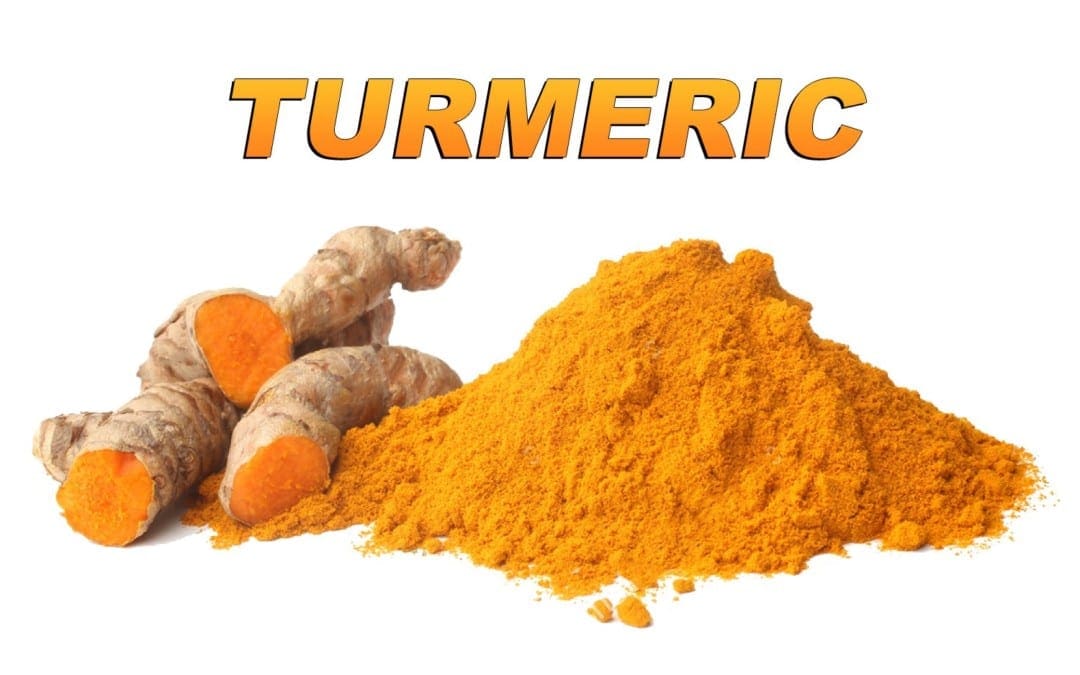
by Dr Alex Jimenez DC, APRN, FNP-BC, CFMP, IFMCP | Cancer Health, Turmeric
The ability of turmeric to fight cancer has been extensively researched. In fact, over 1,500 published studies show that curcumin, turmeric�s active ingredient, is an effective treatment for over 100 different types of cancer.
The fact that mainstream medicine hasn�t embraced turmeric as a non-toxic cancer therapy is nothing short of outrageous. But a new study, in which curcumin outperformed conventional chemotherapy drugs, may finally bring turmeric the recognition it deserves.
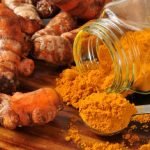
Turmeric Gains Popularity From Growing Awareness Of Chemotherapy & Side Effects
Chemotherapy targets cancer cells as foreign invaders to be eliminated � an approach that ignores the root causes of the disease, and doesn�t help to create an �anticancer� environment in the body. Toxic chemotherapy drugs � which kill healthy cells and cause debilitating side effects � are not very effective against cancer stem cells, the �mother cells� that regulate the growth of tumors.
In fact, the result of these toxic drugs is to make the body even more susceptible to the cancer stem cells � spurring them to create even more treatment-resistant cells.
However, chemotherapy does succeed in killing significant amounts of cancer cells, and this is not to say it should never be used. But, the opinion of many integrative healthcare professionals is that it should be used as a last resort, not a first line of defense � especially when safer, non-toxic options are available.
Curcumin Makes Chemotherapy Safer & More Effective
In a 2015 study published in Cancer Letters, curcumin was tested in conjunction with the chemotherapy drugs 5-fluoroucil and oxaliplatin against colorectal cancer. Adding curcumin to the regimen improved the efficacy of the drugs � the curcumin inhibited cancer cell growth and even increased apoptosis, or cancer cell suicide.
Even more impressive, the curcumin appeared to help the chemo drugs specifically target cancer stem cells, reinforcing the drugs� cancer-fighting abilities while lessening the side effects � including the neuropathies that can be caused by oxaliplatin. Side effects from curcumin � on the other hand � were minimal, involving mild gastrointestinal upset and dry mouth. Researchers concluded that curcumin is a �safe and tolerable adjunct� treatment.
But this wasn�t even the most significant result of the study.
Stunning Finding: Curcumin Outperformed Chemotherapy Drugs
In a small subset of patients, curcumin alone was found to be more effective in reducing overall cancer cells and cancer stem cells than the pair of chemo drugs alone. In other words, curcumin went head-to-head with chemo drugs and outperformed them � a truly astonishing result.
Researchers credited curcumin�s multiple methods of action with its success. Curcumin not only directly killed cancer cells, but also induced apoptosis, inhibited the growth of new cancer cells on a genetic level, and prevented blood supply from reaching new tumors.
All this, while promoting health with beneficial anti-inflammatory, antioxidant and hormone-balancing properties.
Extensive Studies Attest To Curcumin�s Ability To Fight Many Types Of Cancer
As the researchers noted, clinical trials of curcumin in an oncology setting have targeted many types of cancer, including colorectal, pancreatic, breast and blood cancers.
In one study, colorectal cancer patients who were given 1,080 mgs of curcumin daily showed an increase in the amount of dying cancer cells, a reduction of inflammation, improved body weight, and higher gene expression indicating suppression of cancer.
In another study published in Nutrition Research, curcumin-supplemented lab animals showed a 40 percent decrease in the development of colon tumors. These results are supported by an animal model of colon cancer in which curcumin improved survival rate and colon health by completely eliminating cancerous tumors.
In yet another study, patients with pancreatic cancer who were given 8,000 mgs of curcumin a day showed increased survival time along with significant reductions in tumor size � in one case, up to 73 percent.
And, finally, in a study involving prostate cancer, curcumin was shown to cut in half the growth rate of prostate-specific androgen, a marker of tumor progression.
Turmeric Is Still Unapproved & Unacknowledged By Conventional Medicine
In spite of its proven results, turmeric is not approved by the FDA for cancer treatment � and does not enjoy mainstream acceptance in the conventional medical community. The reason, many say, is financial � with hundreds of millions of dollars invested in clinical trials, and massive profits to be made, big pharma doesn�t have much incentive to develop a treatment from a common kitchen spice.
In fact, the industry lobbies to make treatment of cancer by alternative means a criminal offense.
Having said that, we naturally suggest you talk to a trusted medical professional before using turmeric � for any reason � and, don�t stop taking prescribed medication unless advised by your physician.
It should be noted that in the past, turmeric�s therapeutic potential has been limited by its poor bioavailability � the fact that the body doesn�t absorb or use it effectively. But, the development of liposomalized turmeric extract has changed all that, increasing the bioavailability 10 to 20-fold and allowing the curcumin to begin its health-promoting and cancer-fighting work.
Hopefully, the research � presented in this article � will shine a light on the amazing healing potential of turmeric. We encourage every caring physician to do their own research � for the sake of their patients.
Editor�s note: I, personally, use a wonderful liposomal form of turmeric � which you can purchase here and, yes, your purchase does support our operations � at no extra cost to you.

Call Today!
References:
https://www.ncbi.nlm.nih.gov/pmc/articles/PMC4510144
http://www.naturalhealth365.com/curcumin-prevent-cancer-1803.html
http://www.naturalhealth365.com/curcumin-cancer-cells-2009.html
by Dr Alex Jimenez DC, APRN, FNP-BC, CFMP, IFMCP | Herbs, Natural Health
The herb ashwagandha, which has been used for centuries in Indian folk medicine to promote sound sleep has been proven effective by Japanese researchers.
Ashwagandha (Withania somnifera) is a central herb in Ayurveda, the traditional home medicine native to India. Its Latin name — somnifera — means sleep-inducing.
Researchers at the University of Tsukumba studied the effects of various components of ashwagandha on mice by using a neurological test (EEG) to record activity in the brain.
A water extract of ashwagandha leaf, which was rich in the component triethylene glycol (TEG), significantly increased non-rapid eye movement (NREM) sleep. It also slightly changed rapid eye movement (REM) sleep.
An alcoholic extract containing active withanolides, which are other active compounds in ashwagandha, showed no effect on sleep.
The sleep induced by TEG was similar to normal sleep. Furthermore, commercially available TEG also increased the amount of NREM sleep.
The researchers concluded that TEG is the active component that induces sound sleep, and that TEG can improve sleep without side effects. They believe their findings could revolutionize the natural plant-based therapies for insomnia and sleep-related disorders.
According to the Centers for Disease Control and Prevention, up to 70 million American adults have difficulty sleeping. Sleeping disorders increase with aging, and affect almost half of adults 60 and older.
Ashwagandha is available in capsules in health food stores.
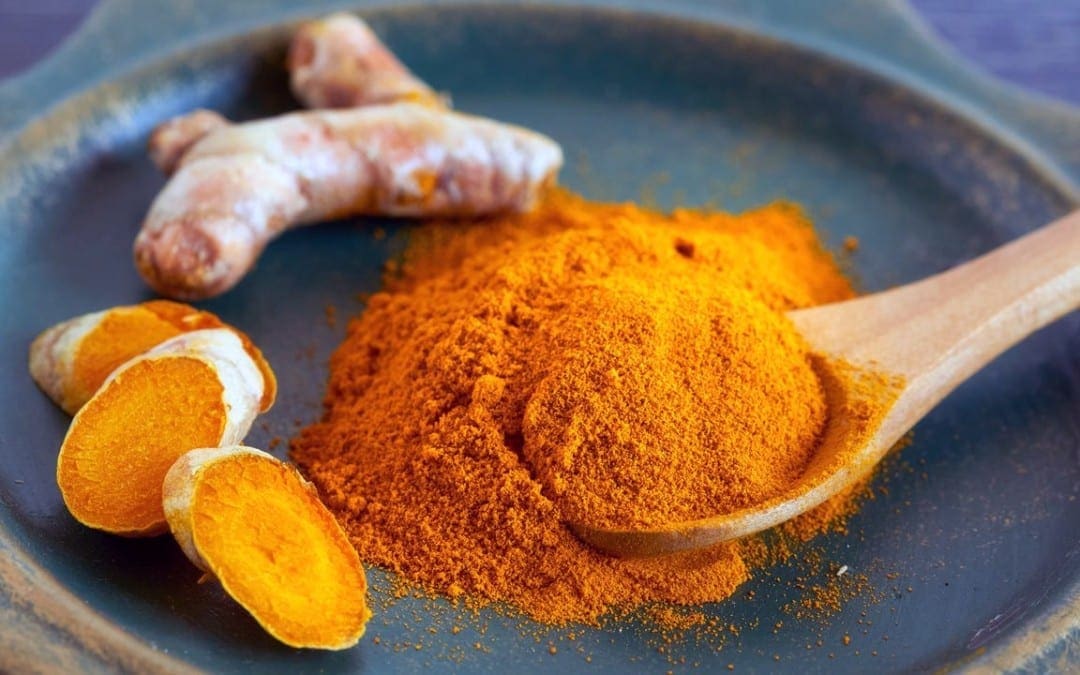
by Dr Alex Jimenez DC, APRN, FNP-BC, CFMP, IFMCP | Turmeric
Turmeric is quickly becoming an “it” superfood. You’ve probably seen the ingredient�all over�Pinterest and Instagram in the form of�golden-hued lattes, soups, and vegan ice cream. It�was even called a “rising star” by Google Food Trends,�since�searches for turmeric jumped�a whopping�56% between November and January.�And as a nutritionist, I’m thrilled, since this healthy food trend is both delicious and backed by research.
Turmeric, a root in the same family as ginger, has�long been used as an anti-inflammatory compound in Chinese and Indian medicine. Its�active ingredient, a yellow compound called curcumin, has been found to have�antioxidant,�antiviral,�and anticancer�properties in lab and animal studies. And although more clinical trials about the benefits�of curcumin for�humans are needed, it’s�been linked to lower total cholesterol levels�and improved liver function�after�liver disease or damage.
RELATED: 6 Cancer-Fighting Superfoods
I eat turmeric almost every day, and advise my clients do the same�with a few caveats. First, I do not advocate taking turmeric supplements, unless they�ve been prescribed (and will be monitored) by a physician, especially for pregnant women. I also caution my clients against going overboard with turmeric root or powder. Too much has been linked to unwanted side effects, including reflux, low blood sugar, increased bleeding risk, reduced iron absorption, and worsened gallbladder problems.
To reap turmeric’s benefits, here are some simple meal and snack ideas to help you get a healthy amount of the root in your diet.
RELATED: The A-Z Guide to Vitamins
Make Turmeric Paste
Turmeric paste is a mixture of ground turmeric, extra virgin coconut oil, cinnamon, and black pepper. It’s used in golden milk lattes�those orange-yellow drinks you’ve probably seen on Instagram�which are�made by�dissolving the paste�into warm almond or coconut milk along with a little organic honey and fresh grated ginger. And while black pepper may seem like an odd ingredient, it actually helps boost turmeric’s absorption from the digestive system into the bloodstream.
Sip On Turmeric Tea
Add a pinch of ground turmeric to warm water along with lemon to start you day. (Note: I�m serious about a pinch�it�s pungent, so too much can be tough to swallow.) Alternatively, you can purchase turmeric tea bags, which can be steeped alone or with other types of tea, such as green, white, black, or oolong.
RELATED: 11 Things You Should Know Before Trying Kombucha
Whip It Into A Smoothie
For a tasty and unique kick of flavor, add a bit of ground turmeric to your morning smoothie. Or opt for fresh, peeled turmeric root, which you�ll find in the produce section, likely near the ginger. A little nub no bigger than the size of your pinky nail�is all you need.
Make It A Seasoning Staple
I love to keep ground turmeric handy to season nearly anything savory, including scrambled eggs, saut�ed veggies, soups, stir frys, and pulses (especially oven roasted chickpeas). You can also fold a little turmeric into nut butter or hummus, whisk it into homemade vinaigrette, or stir it into oatmeal along with coconut milk, maple syrup, cinnamon, and nuts or sesame seeds. The options are endless! In most dishes, I�ll start with an eighth of a teaspoon and add more to taste, making�sure the turmeric won�t overpower other flavors.
RELATED: Healthy 4-Ingredient Dinners You Can Make in 10 Minutes Or Less
Create A�Unique Dessert
To make homemade vegan turmeric �ice cream,� whip turmeric paste with one cup coconut milk or coconut cream, half of a ripe banana, a few pitted dates, maple syrup, and a little extra fresh ginger. Pour into BPA free pop molds, freeze, and enjoy.
Cynthia Sass�is a nutritionist and registered dietitian with master�s degrees in both nutrition science and public health. Frequently seen on�national TV, she�s Health�s contributing nutrition editor, and privately counsels�clients�in New York, Los Angeles, and long distance. Cynthia is currently the sports nutrition consultant to the New York Yankees, previously consulted for three other professional sports teams, and is board certified as a specialist in sports dietetics. Sass is a three-time New York Times best-selling author, and her newest book is Slim Down Now: Shed Pounds and Inches with Real Food, Real Fast. Connect with her on�Facebook,�Twitter�and�Pinterest.

Call Today!
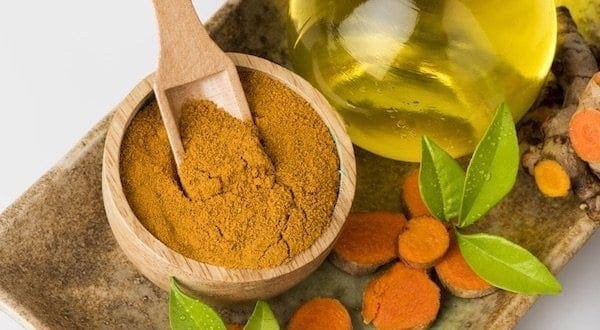
by Dr Alex Jimenez DC, APRN, FNP-BC, CFMP, IFMCP | Turmeric
Turmeric, the bright-orange root so frequently used�in the cuisine of India and Asia, has been a revered cooking ingredient for centuries. Modern research, however, is also delving into its incredible array of health-promoting benefits. According to National Institutes of Health, �Today, turmeric is used as a dietary supplement for inflammation; arthritis; stomach, skin, liver, and gallbladder problems; cancer; and other conditions.��1
Turmeric (Curcuma longa) is a perennial herbaceous plant from the Zingiberaceae family, the same plant family as ginger. The word �turmeric� comes from the Latin �terra merita� meaning meritorious or sacred earth. The aroma of turmeric essential oil is very much like the freshly cut root ? rather spicy, a little sweet, with undertones of earthy and woodsy.�Turmeric essential oil is many times more concentrated than the powdered herb. It�s made�from the plant�s underground roots, called rhizomes, and is extracted from the rhizome by steam distillation.
Both powdered�turmeric spice and turmeric essential oil are a bright yellow or orange in color due to the pigment curcumin. Curcumin is one of the principal healthy components of turmeric and is what gives the color to curries and mustard and is even used for dyeing fabric. You�ll sometimes hear the terms �curcumin� and �turmeric� used interchangeably, but keep in mind that curcumin is only one of many compounds found in the turmeric plant.
The Phytochemical Profile of Turmeric Essential Oil
 The phytochemical (plant-based, all natural components) content of turmeric essential oil is surprisingly complex. Over 300 phytochemicals contribute to making turmeric essential oil an excellent choice for supporting overall good health.
The phytochemical (plant-based, all natural components) content of turmeric essential oil is surprisingly complex. Over 300 phytochemicals contribute to making turmeric essential oil an excellent choice for supporting overall good health.
The major phytochemicals in turmeric oil are ar-turmerone (20-25 percent), alpha-turmerone (18 percent), beta-turmerone (12-13 percent) and curcumin (2-5 percent). The first three are classed as sesquiterpenes ? molecules which help to carry oxygen in the body.
Other special phytochemicals found in turmeric oil include zingiberene (sesquiterpene), beta-caryophyllene (sesquiterpene), eucalyptol (a monoterpene, which helps to reprogram DNA), alpha-phellandrene (monoterpene), beta-sesquiphellandrene (sesquiterpene) and curcumenol.�2 There may well be many other phytochemicals in turmeric essential oil which have yet to be identified and studied.
Historical Use of Turmeric
Turmeric has been used for millennia in ancient healing traditions. In Indian Ayurvedic medicine it has been used traditionally to warm and strengthen the entire body, as a blood purifier, digestive aid, to eliminate worms, improve intestinal flora, and relieve gas. It is also used in India as a liver and gallbladder cleanser and strengthener, to normalize menstruation, to relieve arthritis and joint swelling, for sprains, burns, bruises, cuts and insect bites, for soothing coughs, easing asthma symptoms, as an antibacterial and antifungal agent.
In traditional Chinese medicine turmeric has been used for indigestion, sore throats and colds, liver ailments, and for wound healing.
6�Ways Turmeric Can Support�Good Health
While there are a myriad of traditional uses for turmeric, here are six�ways that turmeric and/or turmeric essential oil can be used to support general health and wellbeing:
#1. Promotes Clear, Unblemished Skin
The antiseptic and antioxidant properties of turmeric essential oil make it a wonderful acne fighter. It is also known to reduce facial hair, and combined with lemon juice, helps to naturally lighten hyperpigmentation of the skin.
A study published in the Dec 2011 issue of the Journal of Cosmetic Dermatology found that skin creams with Curcuma longa extract have photoprotective effects, which means protection against effects of the sun. According to the study, �Ultraviolet radiations generate reactive oxygen species, leading to adverse effects on skin properties. Botanical extracts are multifunctional in nature having various properties like photoprotection, anti-aging, moisturizing, antioxidant, astringent, anti-irritant, and antimicrobial activity.��3
The researchers reported their results as being that: �The photoprotective properties of the constituents of C. longa extract and hydrant, moisturizing lipid components of nano vesicles with better skin penetration resulted in improvement in skin properties like skin hydration and sebum content.��4
 Tip for Use for Acne: Do a patch test in a small inconspicuous place on your inner arm prior to trying this to ensure you don�t have a sensitivity to turmeric essential oil. In a glass mixing bowl combine two drops turmeric essential oil with one to two tablespoons organic raw honey. Mix well and apply to face as a mask. Leave on for 15 minutes and then wash off. While you wait, wash anything the paste came into contact with as it can stain (be sure to protect your clothes!).
Tip for Use for Acne: Do a patch test in a small inconspicuous place on your inner arm prior to trying this to ensure you don�t have a sensitivity to turmeric essential oil. In a glass mixing bowl combine two drops turmeric essential oil with one to two tablespoons organic raw honey. Mix well and apply to face as a mask. Leave on for 15 minutes and then wash off. While you wait, wash anything the paste came into contact with as it can stain (be sure to protect your clothes!).
A quality turmeric oil mixed with raw honey is gentle, nourishing, and helps promote smooth, unblemished skin. The honey should also help to keep the turmeric from staining the skin, although it�s a good idea to also test the paste first on the inside of your wrist before applying to your face. For best results use the mask no more than 1-2 times per week.
#2. Supports Well-Functioning Joints
Doctors from Chinese and Indian Ayurvedic traditions have used turmeric to address joint issues for centuries. Many recent studies have investigated turmeric�s ability to impact�the pain, stiffness, and inflammation associated with both rheumatoid arthritis and osteoarthritis.
One study of note�published in the Journal of Medicinal Food in August 2016 was a joint effort by Korean and American researchers. These researchers analyzed all of the randomized clinical trials that had been done to the date of the article. The researchers stated that the results of the trials �provide scientific evidence that supports the efficacy of turmeric extract (about 1000 mg/day of curcumin) in the treatment of arthritis.��5
It�s important to note that the researchers also stated that �more rigorous and larger studies are needed to confirm the therapeutic efficacy of turmeric for arthritis.��6
#3. Improves Mood and Sense of Wellbeing
 Turmeric essential oil has a long tradition of use for its relaxing and mood balancing properties. Try diffusing some turmeric essential oil into the air while praying, meditating, reading, at bedtime, or anytime you want to feel more calm and relaxed.
Turmeric essential oil has a long tradition of use for its relaxing and mood balancing properties. Try diffusing some turmeric essential oil into the air while praying, meditating, reading, at bedtime, or anytime you want to feel more calm and relaxed.
Research has shown that consuming curcumin (the key compound in turmeric) may also be beneficial for improving mood and happiness levels in those suffering with depression and anxiety. In a 2014 study published in the Journal of Affective Disorders, researchers �hypothesised that curcumin would be effective for the treatment of depressive symptoms in individuals with major depressive disorder.��7
Here�s the methodology the researchers used: �In a randomised, double-blind, placebo-controlled study, 56 individuals with major depressive disorder were treated with curcumin (500 mg twice daily) or placebo for 8 weeks. The primary measure was the Inventory of Depressive Symptomatology self-rated version (IDS-SR30). Secondary outcomes included IDS-SR30 factor scores and the Spielberger State-Trait Anxiety Inventory (STAI).��8
After the 8-week study was completed, they reported the following results: �From baseline to week 4, both curcumin and placebo were associated with improvements in IDS-SR30 total score and most secondary outcome measures. From weeks 4 to 8, curcumin was significantly more effective than placebo in improving several mood-related symptoms � Greater efficacy from curcumin treatment was identified in a subgroup of individuals with atypical depression.��9
#4. Helps With Digestive Issues
Turmeric is considered to be exceptionally helpful with digestive problems. It has been used to help relieve gas, and promote healthy digestion and elimination.
#5. Supports�a Healthy Liver
Turmeric is highly esteemed in holistic medicine for its ability to support liver health. Since the liver is the main organ of detoxification, keeping it in tip-top shape is vital for good health.
#6. Supports Oral Health
Porphyromonas gingivalis (P.gingivalis) is a pathogen in the mouth that�s believed to be associated with the progression of�periodontal disease. The aim of a 2016 study published in the Journal of Clinical and Diagnostic Research �was to substantiate the antimicrobial activity of various essential oils; eucalyptus oil, chamomile oil, tea tree oil and turmeric oil against P. gingivalis.��10
After testing various concentrations of the essential oils against P. gingivalis, the researchers concluded that �At 100% concentration all the tested oils possess antimicrobial activity against P.gingivalis with eucalyptus oil being most effective followed by tea tree oil, chamomile oil and turmeric oil.��11
Precautions When Using Essential Oils
Only Use Quality Oils: The quality of essential oils available on the market is widely varied. Always ensure you are using high quality essential oils, preferably organic. It is important to discover whether the maker of an essential oil uses organic growing methods, knows how to distill the oils so that they contain the essential phytochemicals, and avoids the use of toxic chemicals when growing the plants and extracting the oils. Always purchase essential oils from a trusted source. Cheaper is not always better.
 Dilute: It is recommended to use an organic carrier oil like olive, jojoba, almond, coconut, hemp, or argan to dilute prior to putting any essential oil on the body. Using a carrier oil�aids in absorption, does not affect the potency of the essential oil, and increases the cost-effectiveness of using essential oils for health.
Dilute: It is recommended to use an organic carrier oil like olive, jojoba, almond, coconut, hemp, or argan to dilute prior to putting any essential oil on the body. Using a carrier oil�aids in absorption, does not affect the potency of the essential oil, and increases the cost-effectiveness of using essential oils for health.
Keep Oils Away From Sensitive Areas: Never apply essential oils anywhere near eyes, inside ears, or too close to sensitive regions of the body. If this happens by accident, use a carrier oil to dilute ? water will not help!
Do a Patch Test Before Using an Oil for the First Time: Before applying any essential oil, perform a patch test on a small area of skin such as the inside of the elbow. This is important for anyone, but especially critical if you have sensitive skin. If a reaction occurs, dilute essential oils heavily with an organic carrier oil like olive oil, jojoba, almond, coconut, hemp, or argan oils and test again.
For Babies and Children: Be very cautious when using essential oils with babies and children. They have delicate skin and their bodies are much smaller than adults. Always dilute heavily and seek guidance from a qualified healthcare practitioner before using.
In Pregnancy: Some essential oils should be avoided during pregnancy. Low doses of turmeric are considered to be safe during�pregnancy, but caution should be exercised when using full-strength turmeric oil. One or two studies showed that consumption of turmeric might stimulate the uterus (the worry being that could possibly increase the risk of premature birth or miscarriage). However, other studies have demonstrated that curcuminoids actually have a relaxing effect on uterine muscle. While contradictory, what is known is that millions of pregnant women in India and Asia have taken small amounts of turmeric in their daily diet for centuries, without any adverse effects being reported.
Always remember that essential oils are much more concentrated than the whole plant materials they�re extracted from. Therefore always exercise caution when using them ? especially when pregnant. Dilute heavily and work with an experienced healthcare�provider.
Turmeric essential oil is one of 3�ingredients (along with frankincense and myrrh essential oils) of Magi-Complex blend from Epigenetic Labs.�This breakthrough supplement is the first of its kind to incorporate three of the world�s best nutritional ingredients that support a healthy immune response � the Magi�s gifts to Jesus � all under one cap.
Sources:
- National Institutes of Health: Turmeric
- Chemical Analysis of Essential Oils from Turmeric (Curcuma longa) Rhizome Through GC-MSTopical Vesicular
- Formulations of Curcuma Longa Extract on Recuperating the Ultraviolet Radiation-damaged Skin.
- Ibid.
- Efficacy of Turmeric Extracts and Curcumin for Alleviating the Symptoms of Joint Arthritis: A Systematic Review and Meta-Analysis of Randomized Clinical Trials
- Ibid.
- Curcumin for the Treatment of Major Depression: a Randomised, Double-blind, Placebo Controlled Study
- Ibid.
- Ibid.
- Antimicrobial Efficacy of Various Essential Oils at Varying Concentrations Against Periopathogen Porphyromonas Gingivalis
- Ibid.
by Dr Alex Jimenez DC, APRN, FNP-BC, CFMP, IFMCP | Turmeric
Turmeric contains a wide range of antioxidant, antiviral, antibacterial, antifungal, anticarcinogenic, antimutagenic and anti-inflammatory properties.
It is also loaded with many healthy nutrients such as protein, dietary fiber, niacin, Vitamin C, Vitamin E, Vitamin K, potassium, calcium, copper, iron, magnesium and zinc.
1. Prevents Cancer
Turmeric can help prevent prostate cancer, stop the growth of existing prostate cancer and even destroy cancer cells. Multiple researchers have found that the active components in turmeric makes it one of the best protectors against radiation-induced tumors. It also has a preventive effect against tumor cells such as T-cell leukemia, colon carcinomas and breast carcinomas.
2.Relieves Arthritis
The anti-inflammatory properties in turmeric are great for treating both osteoarthritis and rheumatoid arthritis. In addition, turmeric�s antioxidant property destroys free radicals in the body that damage body cells. It has been found that those suffering from rheumatoid arthritis who consume turmeric on a regular basis experience much relief from the moderate to mild joint pains as well as joint inflammation.
3. Controls Diabetes
Turmeric can be used in the treatment of diabetes by helping to moderate insulin levels. It also improves glucose control and increases the effect of medications used to treat diabetes. Another significant benefit is turmeric�s effectiveness in helping reduce insulin resistance, which may prevent the onset of Type-2 diabetes. However, when combined with strong medications, turmeric can cause hypoglycemia (low blood sugar). It is best to consult a healthcare professional before taking turmeric capsules.
4. Reduces Cholesterol Level
Research has proven that simply using turmeric as a food seasoning can reduce serum cholesterol levels. It is a known fact that high cholesterol can lead to other serious health problems. Maintaining a proper cholesterol level can prevent many cardiovascular diseases.
5. Immunity Booster
Turmeric contains a substance known as lipopolysaccharide, which helps stimulate the body�s immune system. Its antibacterial, antiviral and antifungal agents also help strengthen the immune system. A strong immune system lessens the chance of suffering from colds, flu and coughs. If you do get a cold, a cough or the flu, you can feel better sooner by mixing one teaspoon of turmeric powder in a glass of warm milk and drinking it once daily.
6. Heals Wound
Turmeric is a natural antiseptic and antibacterial agent and can be used as an effective disinfectant. If you have a cut or burn, you can sprinkle turmeric powder on the affected area to speed up the healing process. Turmeric also helps repair damaged skin and may be used to treat psoriasis and other inflammatory skin conditions.
7. Weight Management
Turmeric powder can be very helpful in maintaining an ideal body weight. A component present in turmeric helps increase the flow of bile, an important component in the breakdown of dietary fat. Those who wish to lose weight or treat obesity and other associated diseases can benefit from having one teaspoon of turmeric powder with every meal.
8. Prevents Alzheimer�s Disease
Brain inflammation is suspected to be one of the leading causes of cognitive disorders such as Alzheimer�s disease. Turmeric supports overall brain health by aiding in the removal of plaque build-up in the brain and improving the flow of oxygen. This can also prevent or slow down the progression of Alzheimer�s disease.
9. Improves Digestion
Many key components in turmeric stimulate the gallbladder to produce bile, which then improves digestion and reduces symptoms of bloating and gas. Also, turmeric is helpful in treating most forms of inflammatory bowel disease including ulcerative colitis. However it is important to bear in mind that people suffering from any kind of gallbladder disease should not take turmeric as a dietary supplement as it may worsen the condition. It is best to consume turmeric in raw form when suffering from a digestive problem.. Prevents Liver Disease
Turmeric is a kind of natural liver detoxifier. The liver detoxifies the blood through the production of enzymes and turmeric increases production of these vital enzymes. These vital enzymes break down and reduce toxins in the body. Turmeric also is believed to invigorate and improve blood circulation. All of these factors support good liver health.

by Dr Alex Jimenez DC, APRN, FNP-BC, CFMP, IFMCP | Chiropractic, Herbs
While there’s scant evidence that herbal medications are safe or effective to treat heart conditions, they remain popular among people with heart disease, a new review suggests.
“Physicians should improve their knowledge of herbal medications in order to adequately weigh the clinical implications related to their use,” said senior review author Dr. Graziano Onder.
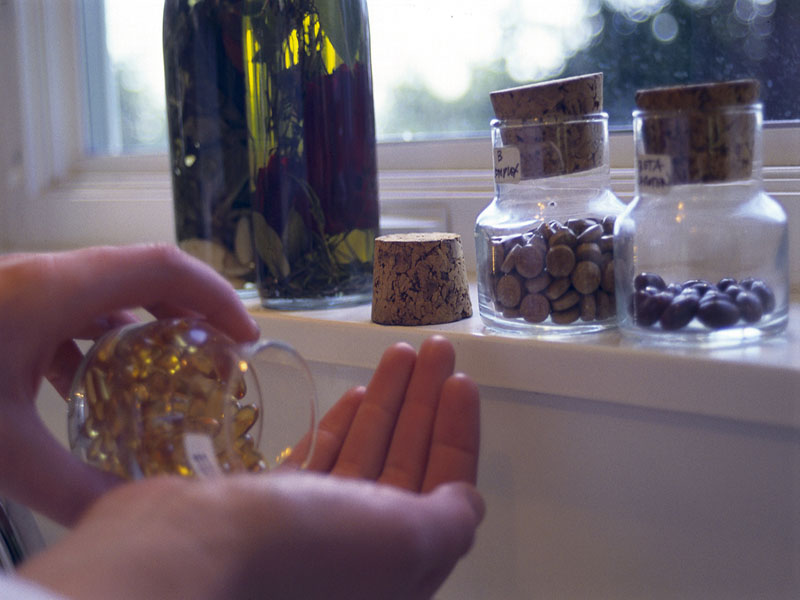
Onder, of the Catholic University of the Sacred Heart in Rome, Italy, is an assistant professor in the department of geriatrics, neurosciences and orthopedics.
Physicians Should Explain That Natural Does Not Always Mean Safe
Onder�said in a news release from the American College of Cardiology.
In the United States, herbal medications can be sold without being tested in clinical trials. As a result, there’s little evidence of their safety or effectiveness, the review authors explained.
The U.S. Food and Drug Administration can only determine that an herbal medication is unsafe after it has already hurt someone. However, this hasn’t stopped many people with heart disease from taking herbal treatments to improve their heart health, the researchers said.
To explore the issue, the investigators looked at 42 herbal medications that have been identified as a possible treatment for one or more heart conditions, including high blood pressure, heart failure and hardening of the arteries.
Onder’s team found there isn’t enough evidence to determine if herbal remedies are causing potential complications.
Many people don’t tell their doctor they are taking herbal medications, probably because they don’t view these as treatments that could cause serious side effects, the study authors said.
Complicating matters even further, many people taking herbal medications don’t follow through on their treatment plan and fail to take the medication prescribed by their doctor properly, the findings showed.
Doctors Should Talk To Their Patients About Potential Risks Of Using Herbal Medications
researchers concluded.
“Communicating with the patient is a crucial component of the process,” Onder said. “The pros and cons of specific herbal medications should be explained and their risk-benefit profile properly discussed.”
The review was published Feb. 27 in the Journal of the American College of Cardiology.
SOURCE: American College of Cardiology, news release, Feb. 27, 2017
News stories are written and provided by HealthDay and do not reflect federal policy, the views of MedlinePlus, the National Library of Medicine, the National Institutes of Health, or the U.S. Department of Health and Human Services.

Call Today!








 The phytochemical (plant-based, all natural components) content of turmeric essential oil is surprisingly complex. Over 300 phytochemicals contribute to making turmeric essential oil an excellent choice for supporting overall good health.
The phytochemical (plant-based, all natural components) content of turmeric essential oil is surprisingly complex. Over 300 phytochemicals contribute to making turmeric essential oil an excellent choice for supporting overall good health. Tip for Use for Acne: Do a patch test in a small inconspicuous place on your inner arm prior to trying this to ensure you don�t have a sensitivity to turmeric essential oil. In a glass mixing bowl combine two drops turmeric essential oil with one to two tablespoons organic raw honey. Mix well and apply to face as a mask. Leave on for 15 minutes and then wash off. While you wait, wash anything the paste came into contact with as it can stain (be sure to protect your clothes!).
Tip for Use for Acne: Do a patch test in a small inconspicuous place on your inner arm prior to trying this to ensure you don�t have a sensitivity to turmeric essential oil. In a glass mixing bowl combine two drops turmeric essential oil with one to two tablespoons organic raw honey. Mix well and apply to face as a mask. Leave on for 15 minutes and then wash off. While you wait, wash anything the paste came into contact with as it can stain (be sure to protect your clothes!). Turmeric essential oil has a long tradition of use for its relaxing and mood balancing properties. Try diffusing some turmeric essential oil into the air while praying, meditating, reading, at bedtime, or anytime you want to feel more calm and relaxed.
Turmeric essential oil has a long tradition of use for its relaxing and mood balancing properties. Try diffusing some turmeric essential oil into the air while praying, meditating, reading, at bedtime, or anytime you want to feel more calm and relaxed. Dilute: It is recommended to use an organic carrier oil like olive, jojoba, almond, coconut, hemp, or argan to dilute prior to putting any essential oil on the body. Using a carrier oil�aids in absorption, does not affect the potency of the essential oil, and increases the cost-effectiveness of using essential oils for health.
Dilute: It is recommended to use an organic carrier oil like olive, jojoba, almond, coconut, hemp, or argan to dilute prior to putting any essential oil on the body. Using a carrier oil�aids in absorption, does not affect the potency of the essential oil, and increases the cost-effectiveness of using essential oils for health.








